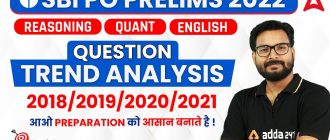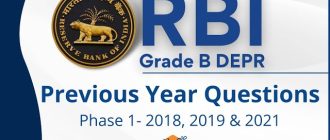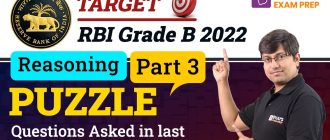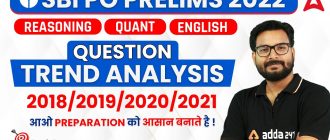(Q 1-5 ) Read the passage and answer the questions
What needs to be set right is our approach to work. It is a common sight in our country of employees reporting for duty on time and at the same time doing little work. If an assessment is made of time they spent in gossiping, drinking tea, eating “pan” and smoking cigarettes, it will be shocking to know that the time devoted to actual work is negligible. The problem is the standard which the leadership in administration sets for the staff. Forgot the ministers because they mix politics and administration. What do top bureaucrats do? What do the below down officials do? The administration set up remains week mainly because the employees do not have the right example to follow and they are more concerned about being in the good books of the bosses than doing work.
1. The employees in our country
(A) are quite punctual but not duty conscious
(B) are not punctual, but somehow manage to complete their work
(C) are somewhat lazy but good natured
(D) are not very highly qualified
2. According to the writer, the administration in India
(A) is by and large effective
(B) is very strict and firm
(C) is affected by red tape
(D) is more or less ineffective
3. The word ‘assessment’ means
(A) enquiry
(B) report
(C) evaluation
(D) summary
4. The leadership in administration
(A) sets a fine example to the employees
(B) is of a reasonably high standard
(C) is composed of idealists
(D) is of a very poor standard
5. The central idea of passage could be best expressed by the following
(A) The employee outlook towards work is justified
(B) The employee must change their outlook towards work
(C) The employees would never change their work culture
(D) The employer-employee relationship is far from healthy
(Q 6-10) Read the each sentence to find out whether there is any grammatical error in it. The error, if any will be in one part of the sentence. The letter of that part is the answer. If there is no error, the answer is ‘D’. (Ignore the errors of punctuation, if any).
6. (solve as per the direction given above)
(A) We discussed about the problem so thoroughly
(B) on the eve of the examination
(C) that I found it very easy to work it out.
(D) No error.
7. (solve as per the direction given above)
(A) An Indian ship
(B) laden with merchandise
(C) got drowned in the Pacific Ocean.
(D) No error.
8. (solve as per the direction given above)
A. I could not put up in a hotel
B. because the boarding and lodging charges
C. were exorbitant.
D. No error.
9. (solve as per the direction given above)
(A) The Indian radio
(B) which was previously controlled by the British rulers
(C) is free now from the narrow vested interests.
(D) No error.
10. (solve as per the direction given above)
(A) A lot of travel delay is caused
(B) due to the inefficiency and lack of good management
(C) on behalf of the railways.
(D) No error.
(Q 11-15) In the following the questions choose the word which best expresses the meaning of the given word.
11. SALACITY
(A) Bliss
(B) Depression
(C) Indecency
(D) Recession
12. ECSTATIC
(A) Animated
(B) Bewildered
(C) Enraptured
(D) Illful
13. PIOUS
(A) Pure
(B) Pretentious
(C) Clean
(D) Devout
14. ABUNDANT
(A) Ripe
(B) Cheap
(C) Plenty
(D) Absent
15. WRETCHED
(A) Poor
(B) Foolish
(C) Insane
(D) Strained
(Q 16-20) Which of phrases given below each sentence should replace the phrase printed in bold type to make the grammatically correct? If the sentence is correct as it is, mark ‘E’ as the answer.
16. The small child does whatever his father was done.
(A) has done
(B) did
(C) does
(D) had done
(E) No correction required
17. The man to who I sold my house was a cheat.
(A) to whom I sell
(B) to who I sell
(C) who was sold to
(D) to whom I sold
(E) No correction required
18. I need not offer any explanation regarding this incident – my behavior is speaking itself.
(A) will speak to itself
(B) speaks for itself
(C) has been speaking
(D) speaks about itself
(E) No correction required
19. Anyone interested in the use of computers can learn much if you have access to a personal computer.
(A) they have access
(B) access can be available
(C) he or she has access
(D) one of them have access
(E) No correction required
20. We can not always convey ourselves in simple sentences.
(A) cannot always convey
(B) can not always express
(C) cannot always express
(D) can not always communicate
(E) No correction required
(Q 21-25) In questions below, each passage consist of six sentences. The first and sixth sentence are given in the beginning. The middle four sentences in each have been removed and jumbled up. These are labelled as P, Q, R and S. Find out the proper order for the four sentences.
21. S1: A force of exists between everybody in the universe.
P : Normally it is very small but when the one of the bodies is a planet, like earth, the force is considerable.
Q : It has been investigated by many scientists including Galileo and Newton.
R : Everything on or near the surface of the earth is attracted by the mass of earth.
S : This gravitational force depends on the mass of the bodies involved.
S6: The greater the mass, the greater is the earth’s force of attraction on it. We can call this force of attraction gravity.
The Proper sequence should be:
(A) PRQS
(B) PRSQ
(C) QSRP
(D) QSPR
22. S1: Calcutta unlike other cities kepts its trams.
P : As a result there horrendous congestion.
Q : It was going to be the first in South Asia.
R : They run down the center of the road
S : To ease in the city decided to build an underground railway line.
S6: The foundation stone was laid in 1972.
The Proper sequence should be:
(A) PRSQ
(B) PSQR
(C) SQRP
(D) RPSQ
23. S1: For some time in his youth Abraham Lincoln was manager for a shop.
P : Then a chance Customer would come.
Q : Young Lincoln way of keeping shop was entirely unlike anyone else’s
R : Lincoln would jump up and attend to his needs and then revert to his reading.
S : He used to lie full length on the counter of the shop eagerly reading a book.
S6: Never before had Lincoln had so much time for reading as had then.
The Proper sequence should be:
(A) SRQP
(B) QSPR
(C) SQRP
(D) QPSR
24. S1: All the land was covered by the ocean.
P : The leading god fought the monster, killed it and chopped its body in to two halves.
Q : A terrible monster prevented the gods from separating the land from the water.
R : The god made the sky out of the upper part of the body and ornamented it with stars.
S : The god created the earth from the lower part, grew plants on it and populated it with animals.
S6: The god moulded the first people out of clay according to his own image and mind.
The Proper sequence should be:
(A) PQRS
(B) PQSR
(C) QPSR
(D) QPRS
25. S1: Smoke oozed up between the planks.
P : Passengers were told to be ready to quit the ship.
Q : The rising gale fanned the smouldering fire.
R : Everyone now knew there was fire on board.
S : Flames broke out here and there.
S6: Most people bore the shock bravely.
The Proper sequence should be:
(A) SRQP
(B) QPSR
(C) RSPQ
(D) QSRP
(Q 26-30) In the following questions choose the word which is the exact OPPOSITE of the given words.
26. EXODUS
(A) Influx
(B) Home-coming
(C) Return
(D) Restoration
27. RELINQUISH
(A) Abdicate
(B) Renounce
(C) Possess
(D) Deny
28. MORTAL
(A) Divine
(B) Immortal
(C) Spiritual
(D) Eternal
29. QUIESCENT
(A) ACTIVE
(B) Dormant
(C) Weak
(D) Unconcerned
30. ENORMOUS
(A) Soft
(B) Average
(C) Tiny
(D) Weak
(Q 31-35) Rearrange the following five sentences in proper sequence to form a meaningful paragraph, then answer the questions given below.
a. The history of mankind is full of such fightings between communities, nations and people.
b. From the primitive weapon of warfare, man has advanced to the modern nuclear weapons.
c. Ever since the dawn of civilization man has been fighting with man.
d. A modern war is scientific in character, but the effect is the same wiping human existence out of this earth.
e. The only difference now seems to be in the efficiency of the instruments used for killing each other.
31. Which of the following should be the first sentence ?
(A) a
(B) b
(C) c
(D) d
(E) e
32. Which of the following should be the second sentence ?
(A) a
(B) b
(C) c
(D) d
(E) e
33. Which of the following should be the fourth sentence ?
(A) a
(B) b
(C) c
(D) d
(E) e
34. Which of the following should be the third sentence ?
(A) a
(B) b
(C) c
(D) d
(E) e
35. Which of the following should be the fifth sentence ?
(A) a
(B) b
(C) c
(D) d
(E) e
(Q 36-40) In questions given below out of four alternatives, choose the one which can be substituted for the given word/sentence.
36. A place where bees are kept in called
(A) An apiary
(B) A mole
(C) A hive
(D) A sanctuary
37. A religious discourse
(A) Preach
(B) Stanza
(C) Sanctorum
(D) Sermon
38. Parts of a country behind the coast or a river’s banks
(A) Isthumus
(B) Archipelago
(C) Hinterland
(D) Swamps
39. Study of the evolution of man as an animal
(A) Archaeology
(B) Anthropology
(C) Chronology
(D) Ethnology
40. One who does not believe in existence of god
(A) Egoist
(B) Atheist
(C) Stoic
(D) Naive
(Q 41-45) Choose the appropriate word
The principal advantage in having a clear cut objective of business is that it does not derail; the enterprise does not stray …(41)… the direct route that it has set for …(42)… Enterprises with well defined objectives can conveniently undertake …(43)… and follow long range development policies. Recognition of objectives …(44)… the temptation to compromise long range …(45)… for short term gains and improves coordination in work and consistency in policy.
41.
(A) form
(B) on
(C) along
(D) towards
42.
(A) others
(B) industry
(C) itself
(d) government
43.
(A) production
(B) research
(C) audit
(D) appraisal
44.
(A) invites
(B) differs
(C) shifts
(D) removes
45.
(A) objectives
(B) loses
(C) interests
(D) profits
(Q 46-50) Some proverbs/idioms are given below together with their meanings. Choose the correct meaning of proverb/idiom, If there is no correct meaning given, E (i.e.) ‘None of these’ will be the answer.
46. To leave someone in the lurch
(A) To come to compromise with someone
(B) Constant source of annoyance to someone
(C) To put someone at ease
(D) To desert someone in his difficulties
(E) None of these
47. To play second fiddle
(A) To be happy, cheerful and healthy
(B) To reduce importance of one’s senior
(C) To support the role and view of another person
(D) To do back seat driving
(E) None of these
48. To be the question
(A) To refer to
(B) To take for granted
(C) To raise objections
(D) To be discussed
(E) None of these
49. A black sheep
(A) An unlucky person
(B) A lucky person
(C) An ugly person
(D) A partner who takes no share of the profits
(E) None of these
50. A man of straw
(A) A man of no substance
(B) A very active person
(C) A worthy fellow
(D) An unreasonable person
(E) None of these
ANSWERS
1. A 2. D 3. C 4. D 5. B 6. A 7. C 8. A 9. C 10. C 11. C 12. C 13. D 14. C 15. A 16. C 17. D 18. B 19. C 20. C 21. D 22. D 23. B 24. D 25. A 26. A 27. C 28. B 29. A 30. C 31. C 32. A 33. D 34. B 35. E 36. A 37. D 38. C 39. B 40. B 41. A 42. c 43. A 44. d 45. A 46. D 47. C 48. B 49. E 50. A






